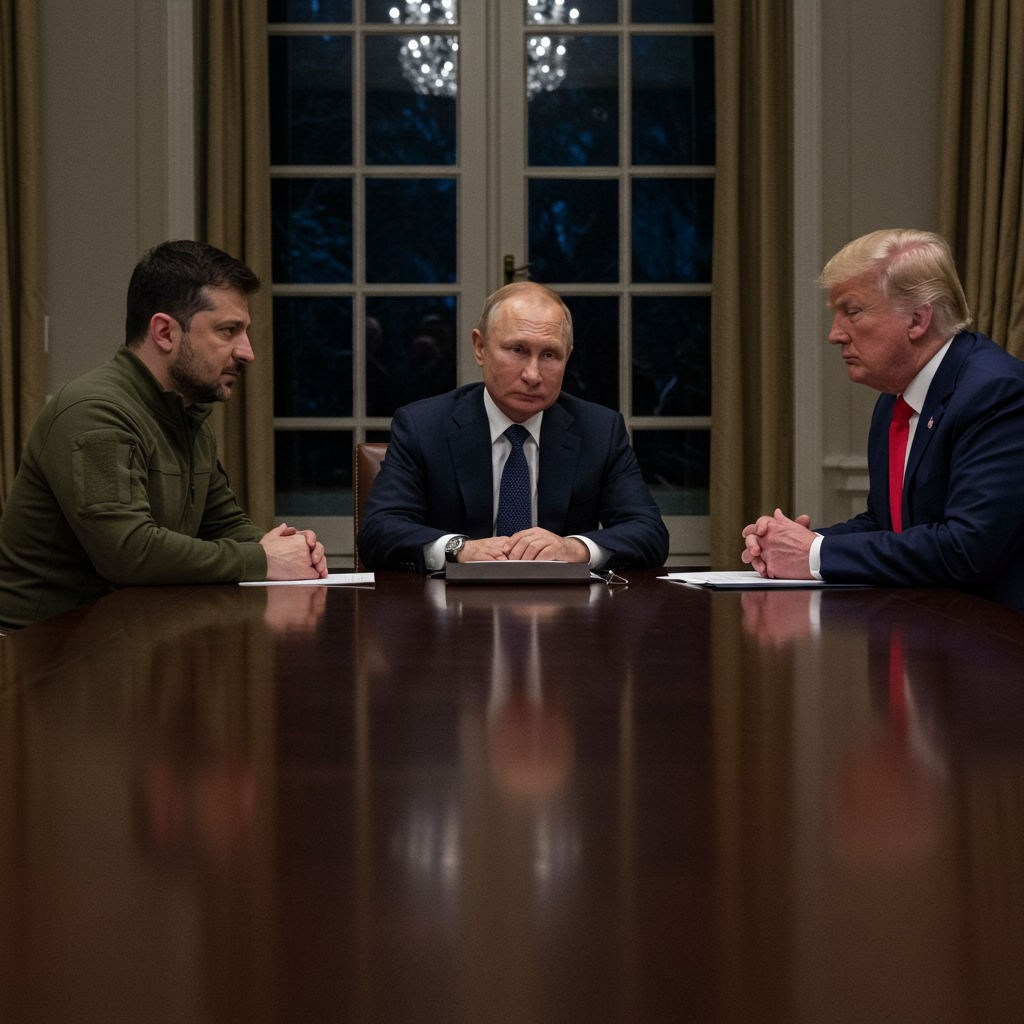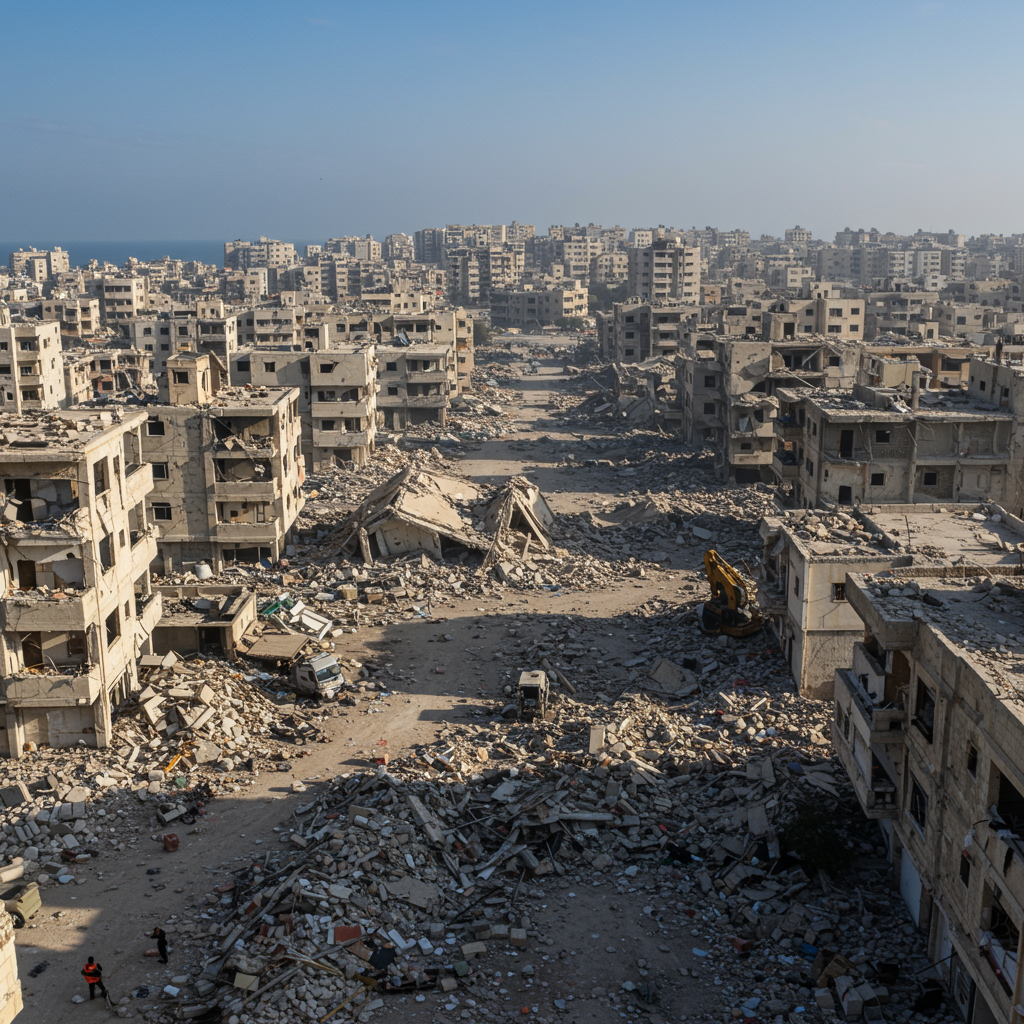Ukrainian President Volodymyr Zelensky has accused Russia of deliberately trying to “buy time” to continue its war and occupation, casting doubt on recent suggestions of progress towards a ceasefire. The accusation follows a flurry of diplomatic activity, including phone calls involving former US President Donald Trump, who had indicated that truce talks could begin “immediately” after speaking separately with Zelensky and Russian President Vladimir Putin.
However, the optimism expressed by some about potential negotiations has been met with skepticism from Kyiv. Zelensky stated on social media that while Ukraine remains ready to negotiate, Russia continues to put forward “unrealistic conditions” and undermine the path to peace. He warned that if Moscow persists in this approach, there must be “tough consequences.” During previous direct talks in Istanbul, which failed to yield a truce, Kyiv accused Russian negotiators of making “sweeping and unacceptable territorial demands.” Zelensky himself described Russia as sending “empty heads” to the table, suggesting a lack of serious intent.
Adding to the conflicting signals, Russian Foreign Ministry spokeswoman Maria Zakharova said it was up to Kyiv to “make decisions” regarding a proposed peace memorandum. Yet, the Kremlin’s own spokesperson, Dmitry Peskov, reportedly downplayed the prospect of imminent negotiations, telling state news agencies that “there are no deadlines and there cannot be any.” Some analysts interpret Putin’s expressed willingness to work on a “memorandum on a possible future peace agreement” – while notably not addressing calls for an immediate 30-day ceasefire – as a tactic designed to buy time, allowing Russia to continue its military operations without the constraint of a truce.
These diplomatic maneuvers unfold against a backdrop of intense fighting across the front lines. Ukraine reported hundreds of clashes and significant Russian casualties in a 24-hour period, underscoring that the conflict is far from a pause. German Defence Minister Boris Pistorius commented that Russia’s continued attacks “speak louder than the lip service,” concluding that Putin is “clearly playing for time” and not genuinely interested in ending the war. Russia currently controls approximately one-fifth of Ukrainian territory since launching its full-scale invasion in February 2022.
Amidst the stalled talks and ongoing combat, Ukraine has intensified its diplomatic efforts with Western allies to shore up support and increase pressure on Moscow. Zelensky stated that working with partners is essential to “force the Russians to change their behaviour.” This push for pressure coincides with new sanctions announced by the European Union and the United Kingdom. The EU is targeting nearly 200 vessels in Russia’s “shadow fleet” transporting oil, warning of a “tougher response” if Moscow does not agree to a truce. The UK has also sanctioned 18 tankers, alongside measures targeting Russian military suppliers, energy exports, and financial institutions.
Notably, the stance on sanctions is not unified among international actors. Former President Trump indicated he would not join new sanctions against Russia, suggesting they could hinder potential progress towards talks. However, Ukraine and several European nations are actively lobbying for massive new sanctions, particularly on Russia’s banking and energy sectors, arguing these measures are crucial to curtailing Moscow’s ability to fund the war. EU foreign policy chief Kaja Kallas echoed this, stating they wanted to see consequences from the US side as well, given past indications. Russia, for its part, has pushed back against Western pressure, claiming success in rerouting energy supplies and accusing Western politicians of trying to disrupt dialogue with the United States.
Past attempts at ceasefires or talks have also been fraught with difficulty. Putin previously rejected a joint US-Ukrainian proposal for a 30-day ceasefire and declined Zelensky’s invitation to meet in Istanbul. Earlier temporary truces, such as one for Russia’s Second World War victory celebrations in May 2023 (which Kyiv refused to join, citing mistrust) and a brief Easter truce, saw little sustained peace, with both sides accusing each other of numerous violations.
Skepticism about the sincerity of the current diplomatic efforts is widespread. Both analysts and citizens in Ukraine and Russia have expressed doubts, with some suggesting the talks serve merely as a cover for continued military action or believing a military outcome is inevitable regardless of negotiations. Ukraine continues to coordinate closely with European partners, maintaining that meaningful, result-oriented negotiations are possible only if Russia abandons its unrealistic demands and shows genuine intent to end the conflict rather than simply playing for time.
References
- https://www.bbc.com/news/articles/cvgddel17kvo
- https://www.bbc.co.uk/news/articles/cvgddel17kvo
- https://www.ndtv.com/world-news/ukraine-president-volodymyr-zelensky-accuses-russia-of-buying-time-to-stall-peace-talks-8462484
- https://uk.news.yahoo.com/zelensky-accuses-russia-buying-time-112514021.html
- https://www.themoscowtimes.com/2025/05/20/zelensky-accuses-putin-of-trying-to-buy-time-in-peace-talks-a89143



